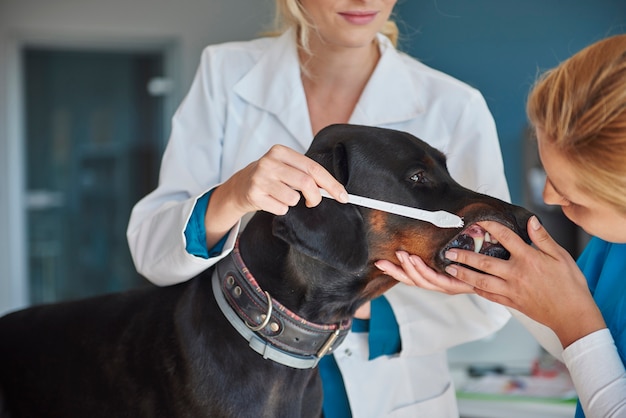Parasite Prevention Strategies for Springfield Pets


Parasite Prevention Strategies for Springfield Pets
Protecting your pet from parasites is a year-round commitment, especially when living in Springfield, IL, and the surrounding communities. As pet owners, you want your cats and dogs to enjoy a healthy, itch-free life without the risk of fleas, ticks, or heartworm disease. At Coble Animal Hospital, located at 2525 East Sangamon Avenue, Springfield, IL 62702, our veterinary team understands the unique challenges local pet owners face with parasite prevention. This blog will guide you through proactive strategies for flea and tick control, highlight ways to protect your pet from heartworms, and explain how regular checkups and preventive plans can keep your pet safe. Whether you are searching for reliable “vet near me” recommendations or want to learn about effective parasite prevention in Springfield, you will find practical advice and reassurance from our experienced veterinarians.
We will discuss how to recognize parasite problems, why these issues are so common in Illinois, and what steps you can take at home and with your veterinarian’s help. If you are ready to take the next step in protecting your pet’s health, our team is here to help schedule an appointment and outline a personalized plan.
Recognizing the Signs of Parasite Problems in Pets
Spotting a parasite problem early is the first step toward effective treatment and prevention. Fleas, ticks, and heartworms can be tricky to detect at first, but attentive pet owners may notice certain warning signs. In dogs and cats, symptoms of a flea infestation often include frequent scratching, biting at the skin, small red bumps, or hair loss around the tail and neck areas. Some pets may develop scabs or become restless, and in severe cases, you might see visible fleas or flea dirt, which looks like tiny black specks in the fur.
Ticks may be easier to spot, particularly after your pet has spent time outdoors in grassy or wooded areas. Owners may feel a small lump while petting their dog or cat, which turns out to be a tick attached to the skin. Ticks can transmit diseases like Lyme disease and ehrlichiosis, which sometimes cause fever, lethargy, or joint pain weeks after the initial bite.
Heartworm disease, spread by mosquitoes, is harder to detect in its early stages. Initial signs can be subtle, such as a mild cough, reluctance to exercise, or fatigue after moderate activity. As heartworm disease progresses, symptoms might involve significant coughing, difficulty breathing, weight loss, and a swollen abdomen due to fluid accumulation. Because these symptoms often develop over months, regular screening is critical.
If you notice any of these signs, especially during the warmer months when parasites are most active, it’s important to contact your veterinarian for a thorough evaluation. Our wellness and preventive health examinations help identify and address parasite problems before they become severe.
Understanding Why Parasites Are a Concern in Springfield
Springfield’s climate creates ideal conditions for fleas, ticks, and mosquitoes to thrive. Warm, humid summers allow parasites to reproduce rapidly; mild winters may not fully eliminate adult pests from the environment, extending their season. Flea and tick populations can flourish in local parks, backyards, and even urban green spaces, putting pets at risk simply by going for a walk or playing outside.
Heartworm disease is particularly relevant in Springfield and the Midwest because of the large mosquito population during spring and summer. Mosquitoes can easily transmit heartworm larvae to both dogs and cats, regardless of whether your pet primarily stays indoors or outdoors. The American Heartworm Society reports that heartworm disease remains a persistent threat in Illinois, making consistent prevention critical for dogs and cats in the region.
Additionally, Springfield and surrounding communities are home to diverse wildlife, such as raccoons, squirrels, and deer, which can carry fleas and ticks into residential areas. Even if your pet never leaves the yard, they can still be exposed to parasites brought in by other animals.
Understanding these local risk factors helps owners appreciate why ongoing parasite prevention in Springfield is not just recommended, but essential for a healthy pet.
Professional Parasite Prevention and Treatment Options
Working with your veterinarian is the most reliable way to safeguard your pet from parasites. At Coble Animal Hospital, our veterinary professionals recommend a comprehensive approach to flea and tick control in Springfield, combining preventive medications, regular screenings, and tailored advice based on your pet’s lifestyle.
Prescription preventives are available as topical spot-ons, oral tablets, or collars, each designed to break the parasite life cycle and provide ongoing protection. For flea and tick control, monthly treatments are typically recommended year-round in Springfield due to the extended activity season. When choosing the right product, our veterinarians consider your pet’s age, weight, existing medical conditions, and potential sensitivities.
Heartworm prevention is especially important, given the seriousness of the disease. Dogs and cats should receive a monthly heartworm preventive, even if they rarely go outside. Before starting or continuing heartworm medication, our veterinary team will perform a screening test to ensure your pet is free from infection. You can learn more about our heartworm testing services for pets and how these screenings fit into your pet’s annual health plan.
If a pet tests positive for a parasite, treatment may involve a combination of prescription medications to eliminate adult parasites, address secondary infections, and relieve skin irritation. For pets with severe skin reactions or ongoing itching, our veterinary dermatology services can provide advanced care to restore comfort and health.
All medications and treatments are available directly through our in-hospital veterinary pharmacy, ensuring you have safe, effective options without the risks of counterfeit products sold online.
Home Care and Preventive Strategies for Flea, Tick, and Heartworm Protection
Keeping your pet parasite-free involves more than just medications; it also requires attentive home care and environmental management. Regularly checking your pet for fleas and ticks after spending time outdoors is a valuable habit, especially during peak months. Pay close attention to areas like the ears, neck, armpits, and between the toes, as parasites often hide in these spots.
Bathing your pet as recommended by your veterinarian can help remove loose parasites and soothe irritated skin. Maintaining a clean home environment is equally important. Washing your pet’s bedding weekly, vacuuming carpets and furniture, and treating your yard for fleas and ticks can significantly reduce the risk of re-infestation.
For heartworm prevention, it’s crucial to administer preventive medication on schedule every month. Set reminders or ask your veterinarian for tips on maintaining a consistent routine, since missing even one dose can leave your pet vulnerable to infection.
Annual wellness visits play a pivotal role in catching parasite issues early. During these exams, your veterinarian will discuss your pet’s risk factors, update preventive plans, and perform necessary screenings. If you have a new puppy or kitten, enrolling them in a preventive health plan ensures they start life with the best possible protection against parasites in Springfield.
When to Seek Veterinary Care for Parasite Concerns
While many aspects of parasite prevention begin at home, there are times when professional care is essential for your pet’s wellbeing. You should schedule an appointment promptly if your pet is experiencing persistent scratching, visible fleas or ticks, sudden hair loss, or unexplained skin irritation. In cases where your dog or cat develops coughing, difficulty breathing, lethargy, or a swollen abdomen, immediate veterinary evaluation is critical, as these may signal heartworm disease or another serious condition.
Even if your pet seems healthy, annual screenings for heartworm and routine checks for fleas and ticks are part of comprehensive parasite prevention in Springfield. Our veterinary team is equipped to provide diagnostic testing, recommend appropriate preventives, and address any underlying health concerns that arise during your visit.
If you are searching for the “best veterinarian near me” for parasite prevention or have questions about your current preventive plan, our experienced team at Coble Animal Hospital is ready to help. By partnering with local pet owners, we create customized strategies for flea and tick control in Springfield that fit your pet’s unique needs and your family’s lifestyle.
Protect Your Pet with Local Parasite Prevention Expertise
Parasite prevention in Springfield is an ongoing process that requires vigilance, up-to-date veterinary guidance, and a proactive mindset. By understanding the risks, recognizing early signs, and committing to professional care, you can help your pet live a happier, healthier life. At Coble Animal Hospital, we are proud to be a trusted resource for “vet near me” searches and to provide quality veterinary services near you.
If you are ready to build a personalized flea and tick control plan in Springfield or need advice on heartworm prevention, we encourage you to schedule an appointment with our veterinary team. Our wellness and preventive health examinations are the foundation of effective parasite prevention and early disease detection. Contact us at (217) 394-1801 or visit us at 2525 East Sangamon Avenue, Springfield, IL 62702 to learn more about how we can support your pet’s health in Springfield and surrounding communities.
Your pet deserves the very best care, and our veterinarians are here to guide you every step of the way. For more information about parasite prevention or to explore our complete range of veterinary services, visit our website at cobleanimalhospital.com. Together, let’s keep your pet safe, comfortable, and parasite-free all year long.
This blog is intended for informational purposes only and should not replace professional veterinary advice. If you have specific concerns about your pet’s health, please schedule a consultation with your veterinarian.

















